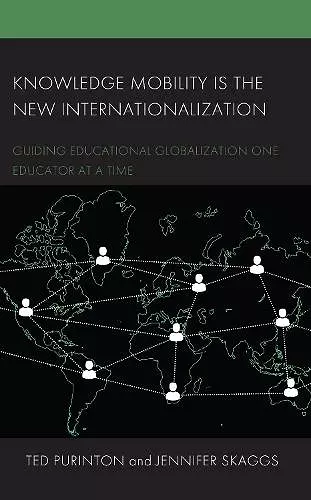Knowledge Mobility is the New Internationalization
Guiding Educational Globalization One Educator at a Time
Ted Purinton author Jennifer Skaggs author
Format:Hardback
Publisher:Bloomsbury Publishing PLC
Published:9th Sep '22
Currently unavailable, and unfortunately no date known when it will be back

Knowledge Mobility is the New Internationalization: Guiding Educational Globalization One Educator at a Time shows how university-based faculties of education in both developed and developing countries can work together toward professional standards that are based on globally recognized evidence and applied in culturally appropriate, and thus sustainable, ways throughout the world. The last half century of international educational development has generated many positive accomplishments, including school access expansion and curriculum quality improvement. However, it has not produced sustainable or comprehensive results, mainly because key institutions and local culture are frequently ignored. Simultaneous to the production of these mixed results in developing countries, education scholars and faculties of education in wealthier countries have pursued an agenda of professionalization of the educational occupations—through higher qualification requirements, more stringent entry standards, and explicit evidence to guide practice. Furthermore, higher education internationalization has increased its scope and expanded its volume. Yet in these three areas—educational development, educational professionalization, and higher education internationalization—there has rarely been any convergence. This book makes a case for this vital union.
Schools of education in the United States are becoming parochial and localists. Partly, this is a response to the crisis of democracy and the need to promote models of social justice helping minorities achieving cultural and economic outcomes. Partly, is the result that identity politics reifying a culture of group identity and displacing traditional forms of distributive justice in capitalist societies. Moving from distribution to identity struggles has been a challenge to the earliest trends of internationalization which, different from simply models of globalization--as this book claims-- focused on the flow of knowledge across borders and the borrowing and learning strategies for policy change. This process was implemented via traveling faculty, cross-national publications, and new metrics, and culminated with information access given the construction of the Internet. This relevant book argues that there is a new internationalization surge which came about with the rise of global university rankings, the employment imperative of globalization, and the prestige of academic mobility. Because globalization often serves as a catalyst for neo-liberal economic and labor policies, these changes affect the nature and role of schools of education, even in top-of-the-line universities that claim to be global in nature. These contradictions are carefully analyzed and criticized in this book drawing from compelling theory and meaningful case studies challenging the way our schools of education in the United States are trying to overcome their own demons. This book by Ted Purinton and Jennifer Dickinson Skaggs about the new internationalization is a must-read and refreshing contribution. -- Carlos Alberto Torres, director, Paulo Freire Institute, UCLA
ISBN: 9781666908893
Dimensions: 238mm x 158mm x 23mm
Weight: 499g
208 pages